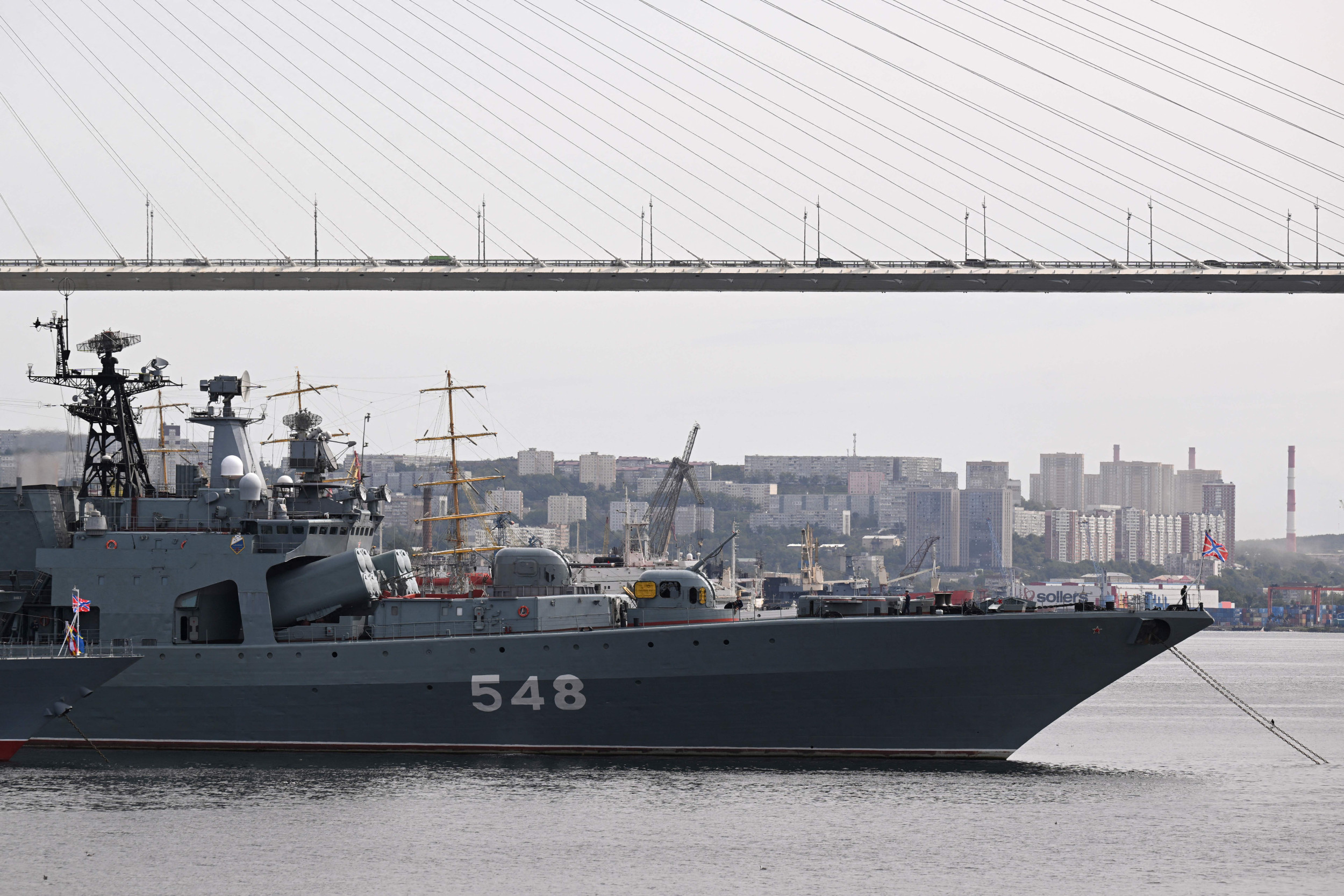Latvia's Foreign Ministry has told Newsweek that Belarus' apparent weaponization of migrants on the European Union's borders represents a "blatant hybrid attack" on the bloc, and will be met with a new round of sanctions on those orchestrating it.
EU nations have accused Belarusian President Alexander Lukashenko and Russian President Vladimir Putin of pushing migrants to the border in retaliation for EU sanctions put in place after Lukashenko rigged last year's presidential elections and subsequently cracked down on protesters, journalists, and civil society.
New migrant flows appeared in August, with Poland, Lithuania, and Latvia all reporting a surge in attempted crossings. This week, a group of some 2,000 migrants has been attempting to cross the border from Belarus to Poland, prompting fresh recrimination from the EU and denial from Minsk and Moscow.
At least eight people have died since the crisis began in August.
"The situation at the Polish-Belarusian border and the Belarusian authorities' irresponsible and dangerous acts are alarming," a Latvian Foreign Ministry spokesperson told Newsweek.
"The illegal border crossings that we currently witness on the eastern border of the EU is an unprecedented and a blatant hybrid attack by Alexander Lukashenko's regime on the European Union.
"As regards to the role of Russia, it is evident that Russia continued to strongly support the Lukashenko regime after August 2020 and the most recent public statements by the highest-level officials are yet another proof of backing the Belarusian authorities.
"It is well-known that there is close cooperation between different institutions and services of Russia and Belarus, including the security services."
The migrants—many of whom are believed to be from nations including Syria, Afghanistan and Iraq—are currently stuck in a frozen no man's land between the two nations, blocked by around 20,000 Polish border guards on one side and Belarusian security forces on the other, some identified and others stripped of all official markings.
EU nations have accused Moscow of supporting the effort. Polish Prime Minister Mateusz Morawiecki said the migrant surge "has its mastermind in Moscow."
The crisis is being driven by a surge of new commercial flights to Belarus, allegedly carrying would-be migrants.
The New York Times reported that Minsk airport's timetable as of October 31 showed at least 47 scheduled flights each week from the Middle East, compared to a weekly maximum of 23 flights on its previous timetable.
Germany's BILD newspaper reported these are being supplemented by more than 70 flights each week from Moscow.
"It is clear that the Lukashenko regime has deliberately aided an illegal migrant surge to the EU already since late summer," the Latvian spokesperson told Newsweek.
"There are numerous accounts about a well-organized operation to bring migrants from the Middle East and Africa to Minsk and then escort them to the borders with Latvia, Lithuania and Poland in order to exert pressure on the EU and its member states."
European leaders are currently preparing a new round of sanctions—the fifth since Belarus' August 2020 election—against Lukashenko and his allies, reportedly including airlines believed to be involved in the new migration surge.
Latvia's Foreign Minister Edgars Rinkevics told Newsweek last month that Riga was at the forefront of that effort. The Foreign Ministry spokesperson told Newsweek Thursday that the measures would be ready soon.
"It is our firm belief that a next round of sanctions against the Belarusian regime would clearly demonstrate the EU's strong response against the hybrid attacks currently pursued by Lukashenko," the spokesperson said.
"We are of the strong opinion that companies involved in or benefiting from this operation have to be held accountable for their actions."
The spokesperson declined to share details, but said: "We are satisfied with the progress achieved and expect that new sanctions will be announced in the coming weeks."
Human rights groups have condemned Belarusian authorities for pushing the migrants towards the frontier, but also have criticized Poland for refusing entry. Polish border forces have used tear gas to try and disperse some groups and thousands of migrants have been detained.
Belarusian and Russian authorities have denied orchestrating the crisis. Both have accused the EU of failing to live up to European ideals by refusing migrants' entry.
Kremlin spokesperson Dmitry Peskov told reporters on Wednesday: "It is apparent that a humanitarian catastrophe is looming against the background of Europeans' reluctance to demonstrate commitment to their European values."
Peskov described allegations of Russian involvement as "absolutely irresponsible and unacceptable."
The Latvian Foreign Ministry defended the Polish-EU decision to block the new arrivals, telling Newsweek the migrant surge is "accompanied by a massive disinformation campaign to discredit the neighboring EU member states."
"Latvia, as well as other countries affected by the hybrid operation of Belarusian regime, have an obligation towards their nationals to ensure safety and security, and protection of the external borders is one of the measures to be taken to this end," the spokesperson said.
"As a matter of well-established international law and subject to their treaty obligations, it remains entirely within the competence of the states to control the entry, residence and expulsion of aliens within its territory in order to maintain and safeguard public order."
Latvia has been granting entry to some of those stuck on the border. Since Riga announced a state of emergency in the border zone in August, 62 people have been admitted on humanitarian grounds.
But at the Polish-Belarus border, tensions remain high. And as winter bites, thousands of desperate people are stuck in the middle of Brussels' escalating conflict with Minsk.
Newsweek has contacted the Russian and Belarusian foreign ministries to request comment.

Uncommon Knowledge
Newsweek is committed to challenging conventional wisdom and finding connections in the search for common ground.
Newsweek is committed to challenging conventional wisdom and finding connections in the search for common ground.
About the writer
David Brennan is Newsweek's Diplomatic Correspondent covering world politics and conflicts from London with a focus on NATO, the European ... Read more





